#FireRisk
Hyundai/Kia Issue Recalls Over Fuel Line Leak, Fire Risk
Hyundai is reportedly recalling around 207,000 Sonata models in the U.S. over a fuel hose issue that could create a fire hazard. Kia issued a recall on 142,000 Optima sedans and 51,000 Sedonas minivans for the same issue. While there doesn’t appear to be any injuries stemming from the problem, Hyundai Motor Group has notified the National Highway Traffic Safety Administration that the vehicles could incur a fuel leak that runs the risk of starting fires within the engine compartment.
The source of the issue has not been discovered; the NHTSA recall report stipulates that the manufacturer “believes the material used to produce the fuel feed line might be more susceptible to heat under certain vehicle operating conditions.” Be on the lookout for a less responsive motor, engine warning lights and the faint aroma of gasoline.
Hyundai Recalls Over 400,000 Elantras Due to Short/Fire Risk
Hyundai Motor America is recalling nearly 430,000 vehicles in the United States over a short risk that could create a fire hazard. Affected models include Hyundai Elantras from the 2006-2011 model years and the Hyundai Elantra Touring from 2007-2011.
Even though the problem is really similar to the one that afflicted older Azera and Sonatas manufactured around the same time, Hyundai says the recall is not related to previous Hyundai recalls. Both cases involved moisture getting into the antilock brake module, which then overheats and creates a fire risk. In both cases, Hyundai said fires can occur after the vehicle is turned off.
GM Recalls More Than 900,000 Vehicles Worldwide Over Brake and Battery Issues
General Motors is recalling more than 900,000 vehicles across the globe to addresses issues from separate campaigns — one of which poses an always-exciting fire risk. On Thursday, the automaker announced a callback of more than 400,00 Chevrolet Silverado and GMC Sierra 1500 trucks from the 2019-2020 model years. The manufacturer is concerned that pickups’ battery positive cable rings may have been installed with excessive glue, creating a stalling risk, or in some instances a potential fire hazard.
Another 550,000 Chevrolet Silverado 1500, Cadillac CT6, and GMC Sierra 1500 models from 2019 will also need to be recalled. A potential software issue related to the vehicles’ service brake system notifications could cause it to go haywire, negatively impacting their electronic stability control (ESC) and anti-lock braking (ABS) functions.
Fire Risk: GM Recalls 160,000 Canadian Pickups, No News on U.S. Models
General Motors is issuing a recall on select Chevrolet Silverado and GMC Sierra pickups, including HD models. According to Transport Canada, trucks equipped with a power sliding rear window could have a defroster circuit that can melt itself or, in rare instances, catch fire.
As no fix currently exists, GM is asking owners to bring their vehicles into the dealership so that the fuse for the rear defroster can be disconnected while it works on finding a better solution. The recall encompasses 159,240 trucks from the 2014-2019 model years.
Don't Bother With the Garage Tonight: Nissan Recalls Over 215,000 Vehicles in U.S. Over Fire Concern
Nissan North America is recalling 215,124 vehicles in the United States and another 19,761 units in Canada due to an anti-lock brake pump defect that could pose a fire hazard. Affected models include the 2015-2017 Nissan Murano, 2016-2017 Nissan Maxima, 2017-2018 Nissan Pathfinder and 2017 Infiniti QX60.
The National Highway Traffic Safety Administration’s report on the recall says a seal on the ABS actuator pump may leak brake fluid onto the control electronic circuit board, resulting in a malfunction. In such an instance, the ABS warning lamp should come on to warn the driver. If this notification goes unheeded, the fluid leak could eventually cause “an electrical short in the actuator circuit, which in rare instances, may lead to a fire.”
Jeep Recalling 48,990 Cherokees Over Fire Risk
The 2018 Jeep Cherokee is under recall due to some improperly fitted fuel tubes. As the issue relates to the possibility of a gas leak, this falls under the fire-risk category and should have people freaking out left and right. However, the problem is only associated with Cherokees equipped with the 16-valve 2.4-liter inline-four engine.
FCA’s internal report, according to the recall filing, noted that an investigation revealed “a batch of fuel-supply tubes may have connectors that were incorrectly fitted” on the 2018 model year. Fortunately, the refreshed Jeeps for 2019 don’t appear to be affected.
Maserati Recalling Brand New Sedans Over Fire Risk
Maserati of North America is recalling over 1,000 of its newest luxury sedans to repair fuel lines that pose an engine fire risk. It’s not exactly what you’d want to hear when discussing your fresh, six-figure status symbol, but the automaker appears to be addressing the problem right out of the gate. According to the manufacturer, the vehicles haven’t even been delivered to the customers yet.
The affected vehicles include Maserati’s 2018 Ghibli and Quattroporte sedans. Both models suffer from a potentially weepy fuel line in the engine compartment that could leak gasoline exactly where you don’t want it. As customers have yet to take delivery, the units will have to be repaired prior to being picked up.
Volkswagen Expands U.S. Fire Risk Recall to Almost 300,000 Porsche and Audi SUVs
Volkswagen Group is adding another 292,000 Porsche and Audi vehicles to an earlier recall relating to a fuel-pump defect that could result in fires. The National Highway Traffic Safety Administration has issued an alert concerning specific models of the Porsche Macan, Audi Q5 and Audi Q7 sport-utility vehicles.
The problem stems from a flaw in the fuel-pump flange, manufactured by Continental AG, that could create a leak and potential fire hazard.
Catch an Oily Whiff of Malaise Era Ford as It Recalls 4,500 Firetraps in South Africa
About a month after Ford began deliveries of the 2013 Escape, it suddenly recalled every single unit equipped with a 1.6-liter EcoBoost engine. A faulty fuel line in the engine compartment posed a fire risk so bad that Ford actually urged people not to drive their cars until the necessary repairs had been carried out.
However, the 1.6 liter Ford Kugas sold in South Africa — essentially renamed world-market Escapes — never received the same sort of attention. Almost 50 Kugas have spontaneously combusted so far, leading to one fatality, and the Blue Oval is just now issuing a “voluntary” recall.
Anyone recall the 1970s Ford Pinto?
General Motors Recalling 1.4 Million Cars for Increased Fire Risk
General Motors announced Tuesday that the automaker would recall 1.3 million cars for an oil leak that could ignite, Reuters reported.
According to the report, 1,345 fires have been reported in cars that were repaired for similar issues under two previous recalls. In six years, 19 minor injuries were reportedly caused by leaking oil.
Mazda3 Stop Sale Ordered Due to Gas Leak, Fire Risk
Mazda stopped selling and delivering 2015 and 2016 Mazda3s built between May 21 and Aug. 24, the automaker announced Tuesday. A faulty fuel shut-off value may lead to fuel being pumped into the charcoal emissions canister, which could lead to leakage, engine stalls and possible fire.
The stop sale and recall affects 14,270 vehicles in the U.S. and 136 vehicles in Puerto Rico.
DIY Recall: Fix Your Fire-prone Chevy Colorado and GMC Canyon With Toyota Parts
Left: Updated Tacoma Resistor, Right: Colorado Resistor
The fire-risk blower motor resistor harness has been recalled in the Hummer H3 and owners will start receiving repairs once parts become available. Owners of the Pontiac Solstice and Saturn Sky should be able to use the updated parts as well but will have to pay out of pocket as General Motors has not recalled them at this time. The Chevrolet Colorado and GMC Canyon also use a similar design and pose a similar fire risk but are slightly different than the recalled part due to having one less blower speed.
Hummer owners will most likely wait a few months minimum for the updated parts to get to their dealers to perform their free recall repairs. Colorado and Canyon owners may be waiting much longer — if they are recalled at all. The only silver lining for the Colorado and Canyon is that they use a similar resistor to the Toyota Tacoma and share a connector. The Tacoma also suffered from blower motor resistor issues and received updated parts along with a Technical Service Bulletin in 2011.
Pontiac Solstice, Saturn Sky Share Same Fire-Risk Parts With Hummer H3
Last week, we learned General Motors was recalling the majority of their Hummer H3 and H3T models due to a fire risk from a melting blower motor resistor and harness. We also learned GM didn’t issue the recall until they were threatened by the National Highway Traffic Safety Administration.
A few days ago, Jalopnik’s Michael Ballaban pointed out the Chevrolet Colorado and GMC Canyon were also at risk due to similar components. These trucks may not be the last of the affected models as the Pontiac Solstice and Saturn Sky also shared many HVAC components with the Hummer H3.
Searching through the NHTSA complaints database and user forums yielded many examples of melted and burnt blower motor resistors and harnesses for the GM roadster twins.



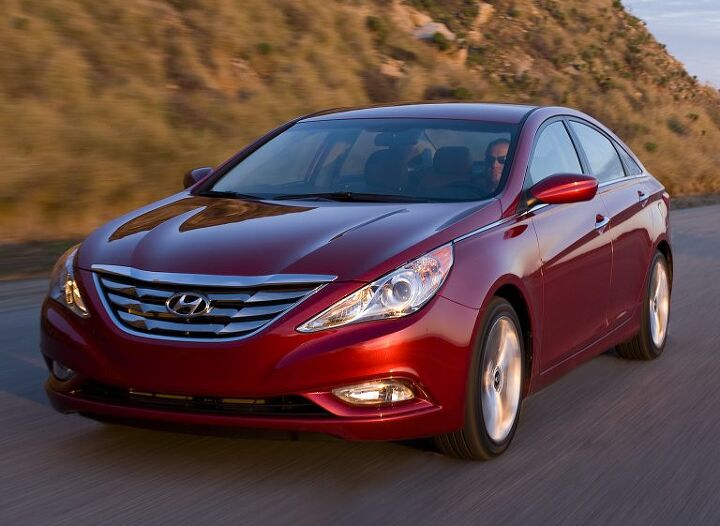

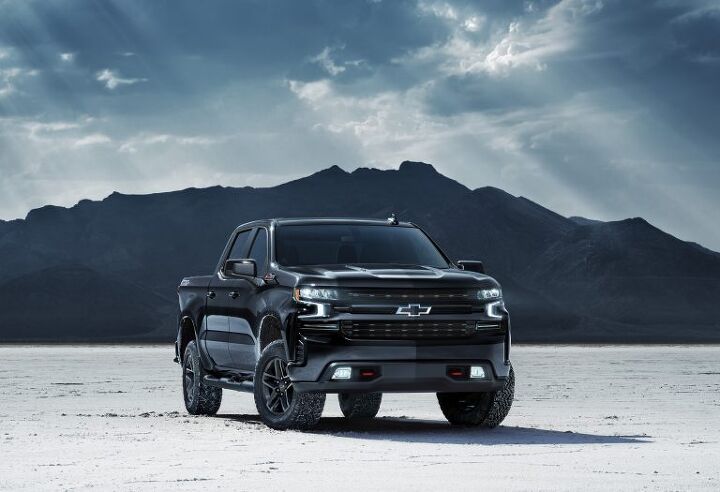

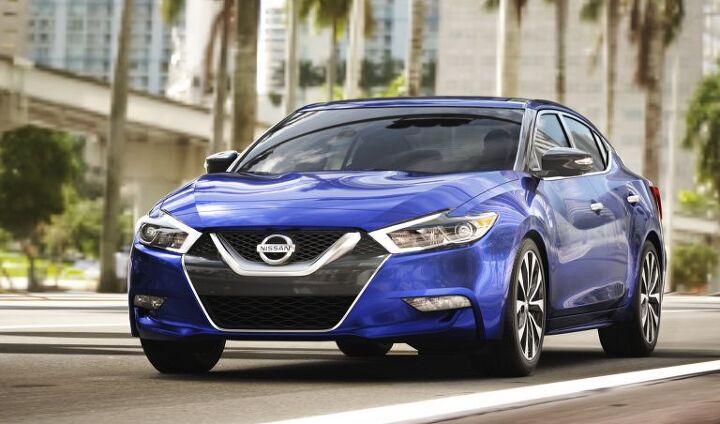





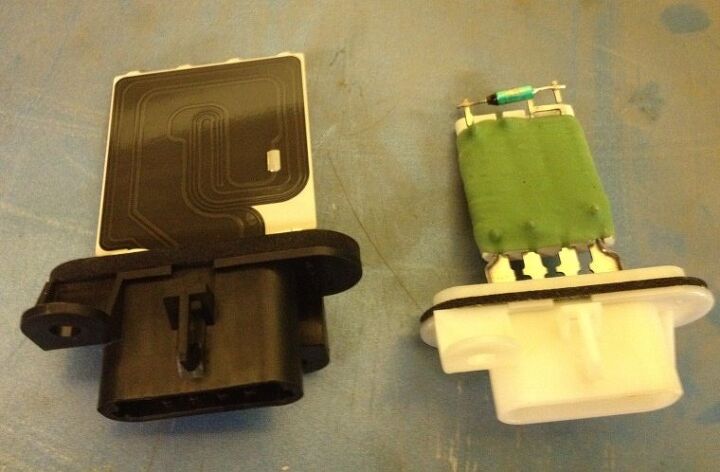
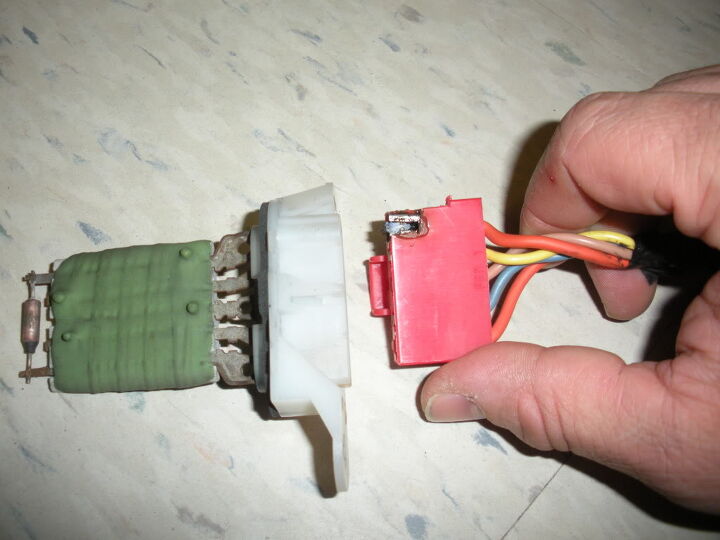












Recent Comments